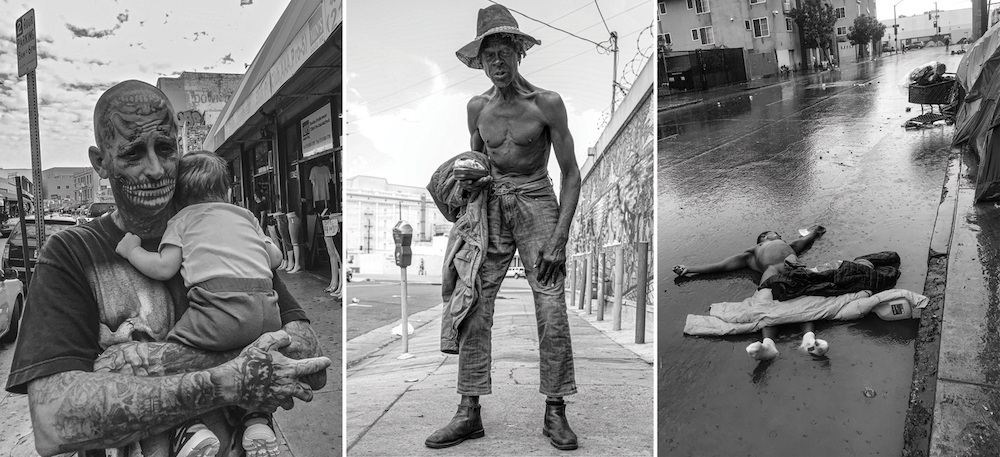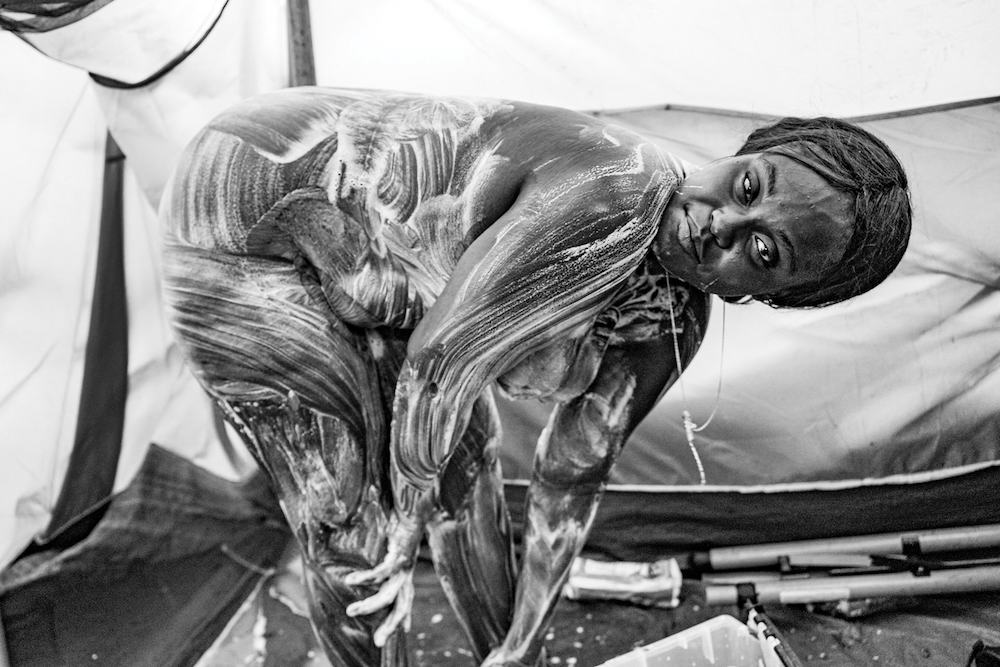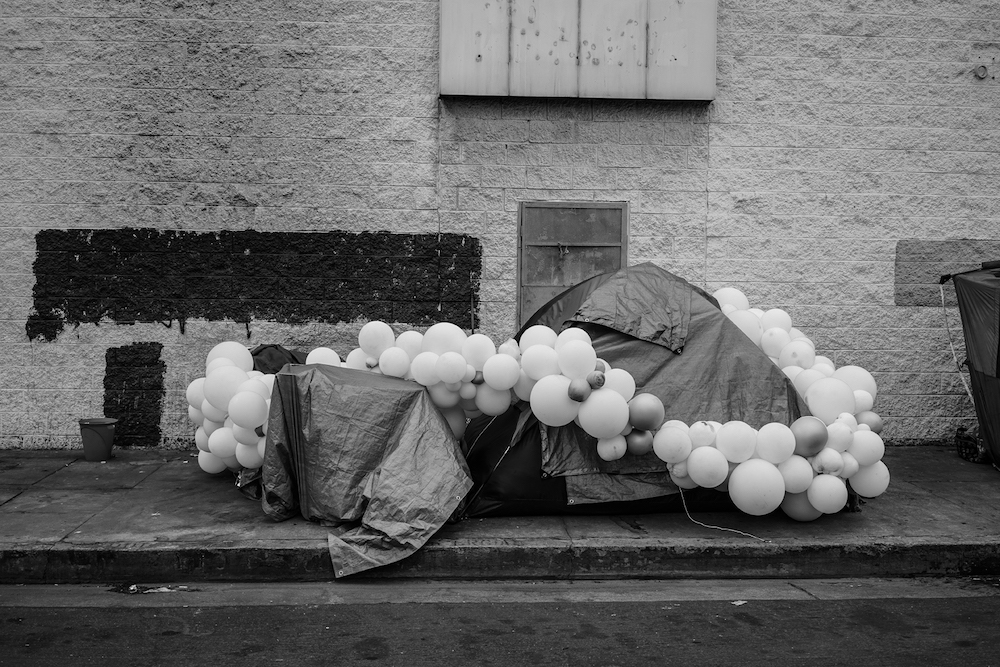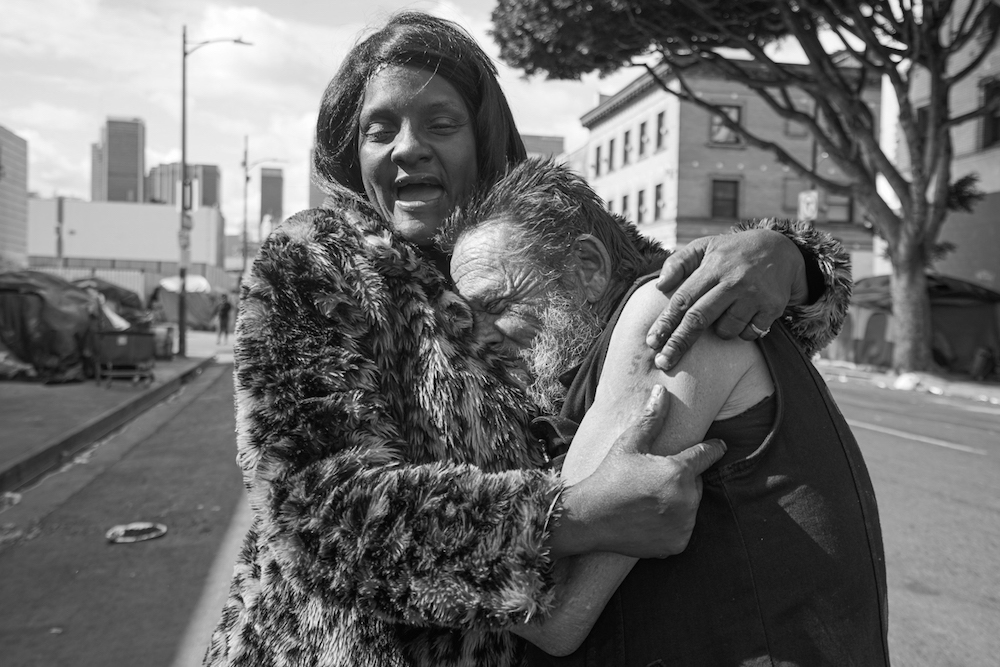Sidewalk Champions
By Suitcase Joe
Burn Barrel Press
In the wake of the unprecedented court decree issued in April by a federal judge ordering the city of Los Angeles to provide shelter for the 4,600 souls currently living in downtown skid row by this October, the work of photographer Suitcase Joe could not be more timely. His recently released book, Sidewalk Champions (Burn Barrel Press), will consequently provide a valuable historical account of what this urban dystopia looked and felt like at the height of its sprawling horror.
Photographic documentation of the disenfranchised dates way back to the Gilded Age in 19th-century America when the manifestations of extreme wealth inequity were eerily parallel to the here and now. The first devotee to social documentary photography was the fascinating figure Jacob Riis who pioneered the use of flash photography, allowing him to light up dark tenements and alleyways occupied by New York City residents (especially children) living on the ragged margins of urban life.
Riis’ tireless efforts exposed inhumane living conditions to the middle and upper classes for the first time, igniting an era of social reform that came into full fruition during the Great Depression with the creation of the influential FHA.
Yet today’s images of the homeless rarely move or surprise us anymore. Due to advances in technology that make taking and sharing pictures more expedient, portrayals of their plight oversaturate the media landscape, inuring us to the urgency of the issue—the opposite effect pioneers like Riis intended. Add to that the public’s growing (and often unfair) accusations of exploitation by those who photograph homeless populations, trying to shed light on the injustices of the human condition has become challenging and treacherous for even the most well-intentioned photographer, beyond the already considerable physical risk of working in dangerous neighborhoods.

Left to Right: A Father’s Love; Old Man Mel; Man Down, Name Unknown
Suitcase Joe’s skid row series warrants serious consideration, due in part to its high degree of humanity that succeeds in evoking our empathy. Unlike most contemporary photography depicting homelessness, his subjects are not remotely rendered as generic representations of a sociological condition; rather, they are portrayed as emotionally animated human beings with their own unique manifestations of struggle and survival. The images are often tender and poignantly observed; he does not mistake physical proximity for genuine intimacy. Yet he spares us an excess of cliché graphic close-ups—like heroin needles being injected into filthy arms—which only serve to reinforce stereotypes and cause us to look away instead of draw us in.

Bath in a Tent
Stylistically, he forgoes formal rigor and more deliberately conceived lighting for freewheeling lyrical spontaneity that enlivens the photos with refreshing gusts of warmth, surprise and even humor.
As a whole, the impressive breadth and depth of the work demonstrates a long-term commitment to the subjects who—based on their relaxed and even light-hearted expressions in many of the images—clearly know and trust Suitcase Joe. In both his photos and poignant introductory text, it’s clear he’s forged a special relationship with the Skid Row community that has enabled him to perceive and render the complexities of homeless life with greater detail, honesty and compassion.

A Skid Row Celebration
“. . . If you dive beneath the surface you find some of the most kind and generous people stemming form all walks of life . . .”
“Skid Row is both beautiful and horrific and cannot be weighed fairly in one particular way. It is as complex as an civilization with its own wars and triumphs being fought and won everyday. Each block with its own inner workings and social hierarchies that contribute to the greater heartbeat of the community at large.”
… Skid Rowe is home to society’s castaways and have-nots, and necessity has born them into engineers, hunter gatherers, and a school of deep thinkers with poignant and poetic tongues. For all the books you can read about human nature and our instinctive will to survive – there is no better university than the streets of Skid Row.”
– Suitcase Joe


